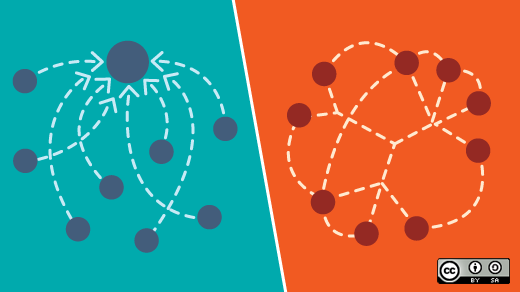 Stormy Peters and Avni Khatri will present Grow an organization by planting volunteers at OSCON 2015. Peters is the vice president of technical evangelism at the Cloud Foundry and Khatri is president of Kids on Computers. In this talk, they share their experiences and lessons for growing a healthy garden of volunteers.
Stormy Peters and Avni Khatri will present Grow an organization by planting volunteers at OSCON 2015. Peters is the vice president of technical evangelism at the Cloud Foundry and Khatri is president of Kids on Computers. In this talk, they share their experiences and lessons for growing a healthy garden of volunteers.
As part of our OSCON speaker interview series, Stormy Peters talked to us about the current state of community management and where it's going.

Your talk title suggests that volunteers have to be tended like a garden. How can projects make sure the seeds they plant grow well?
You have to make sure the plants, I mean volunteers, are happy—that you understand how they want to grow and they understand and agree with what the garden will look like.
But, seriously, some real ideas:
- Understand what motivates them, and work with that. Are they looking to learn new things? Solve a problem they have? Write a thesis for their masters degree? Make friends? Help them accomplish that.
- Make it easy to help you—and easy for people to get started with your project. Remember that it's scary to join a new project or send an unsolicited email or a pull request to a group of people you don't know.
- Reward and grow your volunteers. What motivates them? Recognition? Travel to events? Opportunities to lead?
How can a small project with no community management expertise get a community started?
Share your story! Tell as many people as you can why you are doing what you are doing, why it's exciting, and why it's needed. Then tell them what you need and invite them by name to join you.
Open source projects frequently seem to place software development over community. How can project leaders make the project more welcoming to non-coding contributors?
Be sure to publicly thank people for all those non-coding contributions. You'll be surprised at how many other people are really thankful that someone finally cleaned up the wiki or translated that doc.
With the rising importance of mobile development, how does that change the way volunteers are recruited and retained?
That's a really great question. I hope that mobile development means we are attracting a whole new group of people that want to help us all make the world a better place through open source software. They key for projects will be making sure you know what motivates them—why they are helping you—and how you can help them.
What do you see as the next big challenge in community management?
I think it's getting more complicated to get started. It used to be all you had to do was figure out how to get your build to work and check in and check out code.
Now you probably have to figure out how to run three to four different services and get them all working together before you even get to get started. That adds a barrier to entry to volunteering at a project. I think projects will have to get better at documenting the getting started process, and I think other services and projects—like projects for cloud-native apps—will help simplify the process itself.
Speaker Interview
This article is part of the Speaker Interview Series for OSCON 2015. OSCON is everything open source—the full stack, with all of the languages, tools, frameworks, and best practices that you use in your work every day. OSCON 2015 will be held July 20-24 in Portland, Oregon..






Comments are closed.